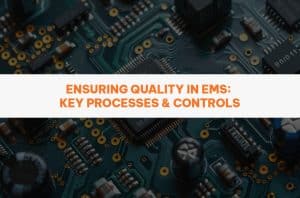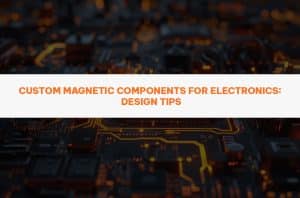In the present-day electronics industry, bringing an excellent idea to life is not just the matter of the given innovation but of the good and quick execution as well. Each and every phase of product development goes from design and prototyping up to production and delivery and has to be in perfect harmony. That’s when the turnkey electronics manufacturing comes into play. Building a partnership with a capable Electronics Contract Manufacturer (ECM) that gives the full range of services means that the companies can streamline their journey from concept to market, therefore, not only saving time but also lowering the risk and having the assurance of quality product.
What Is Turnkey Electronics Manufacturing??
Turnkey manufacturing is the all-inclusive method whereby one contract manufacturer is in charge of the whole production process — sourcing the parts, final assembly, testing, and shipment included. The word “turnkey” indicates that the manufacturer is responsible for everything until the product is complete and ready for shipment once you give them your design — you only need to “turn the key.”
The Advantages of a Turnkey Manufacturing Partner
1. Seamless Supply Chain Management
Component sourcing is among the most significant difficulties in the electronics industry. Turnkey ECMs keep good and long relationships with global suppliers, thus, gaining the access to the best quality components at the lowest prices. They also take care of logistics, lead times, and supply chain risks — allowing you to concentrate on the technical side rather than procurement headaches.
2. Faster Time-to-Market
In the electronics sector, speed is everything. The partner responsible for design, sourcing, assembly, and testing at one point, significantly shortens the development cycle. Turnkey manufacturers do away with the back-and-forth communication among suppliers, allowing faster prototyping and quicker ramp-up to full-scale manufacturing.
3. Faster Time-to-Market
Brand reputation depends heavily on consistency. The best turnkey ECMs that have a good reputation are those that enforce very stringent quality management systems (QMS) and follow the international standards that are ISO 9001, IPC-A-610, and RoHS compliance. The in-house testing, which involves functional, in-circuit, and environmental testing, guarantees that each unit satisfies the performance criteria before it is sent out.
4. Cost Efficiency Through Integration
Although turnkey services may seem costly initially, the incorporation of design, sourcing, and assembly often leads to a reduction in overall costs. Having fewer suppliers also means dealing with fewer invoices, incurring lower overheads, and reduced shipping and coordination costs. Besides, getting design-for-manufacturability (DFM) feedback early prevents expensive redesigns later on.
5. Scalable Production Capability
A good turnkey partner can easily scale up or down to produce ten prototypes or ten thousand production units. Their flexible infrastructure and automation capacity can respond to changes in demand without sacrificing quality or delivery.
6. Reduced Risk and Simplified Oversight
Having many suppliers increases the chance of poor communication, delays, and quality variations. Turnkey ECMs give a single source of responsibility — one team in charge of the whole process. This simplifies the project and ensures that all the steps, from the first schematic to the last shipment, are well-coordinated.
- Technical Expertise – Look for experience across industries such as automotive, medical or consumer electronics.
- In-House Capabilities – Ensure the partner provides complete services — PCB assembly (SMT and through-hole), testing, box build and logistics.
- Quality Certifications – Verify certifications like ISO 9001, ISO 13485 (for medical), or AS9100 (for aerospace).
- Supply Chain Strength – A robust procurement network ensures component availability even during shortages.
- Communication and Transparency – Choose a partner that offers clear communication, real-time project tracking, and responsive customer support.
Applications Across Industries
The advantages of a turnkey manufacturer are not only in the convenience but also in the proper matching of all departments — engineering with production, quality with efficiency, and innovation with scalability. If a company can early on make the right partner ECM it can gradually move a concept to a market-ready product through the shortest route with least risks and the largest possible assurance of performance.
In a world where speed, precision, and reliability define success, turnkey electronics manufacturing offers a smarter, more cohesive path forward. Whether you’re developing a next-generation wearable, industrial sensor, or automotive module, the right partner ensures your vision reaches the market exactly as intended — on time, on budget, and built to last.
Conclusion
The selecting of the right electronics contract manufacturer is not only a sourcing decision but also a strategic partnership. A reliable turnkey supplier not only provides manufacturing excellence but also gives you peace of mind, which allows you to concentrate on innovation while they take care of the details.
A turnkey ECM does not merely construct your product but rather engages in the process of turning your idea into reality from concept to completion.
FAQ
What is the main difference between turnkey and partial electronics manufacturing?
Turnkey manufacturing handles the entire process from sourcing to delivery under one provider, while partial manufacturing requires coordinating multiple suppliers.
How does a turnkey electronics contract manufacturer help reduce costs?
By consolidating all stages of production, turnkey ECMs lower shipping, coordination, and overhead costs while preventing expensive redesigns through early DFM feedback.
What quality standards should a reliable turnkey ECM follow?
A dependable ECM should comply with ISO 9001, IPC-A-610, and RoHS, and may also hold ISO 13485 or AS9100 certifications for industry-specific needs.
Why is scalability important in turnkey electronics manufacturing?
Scalability ensures that production can increase or decrease without quality loss, allowing smooth transitions from prototype to mass production.
What should I look for when choosing the right turnkey electronics contract manufacturer?
Choose an ECM with proven technical expertise, strong in-house capabilities, and transparent communication throughout the entire project.


